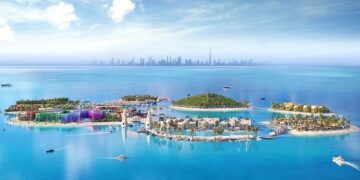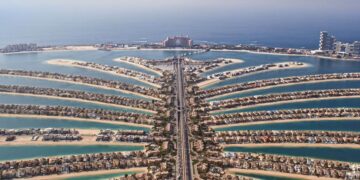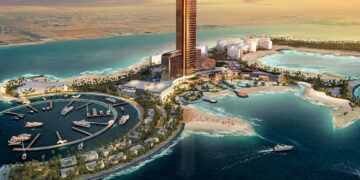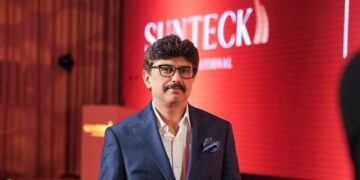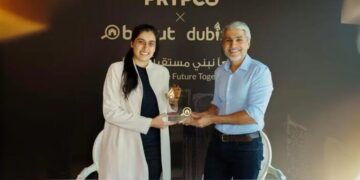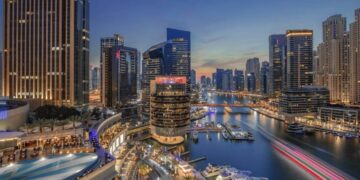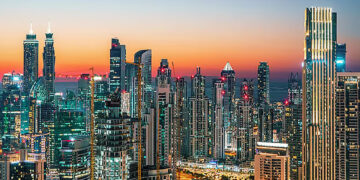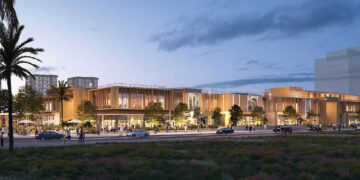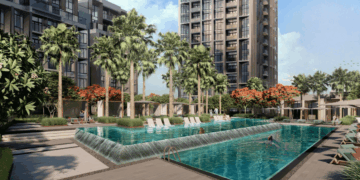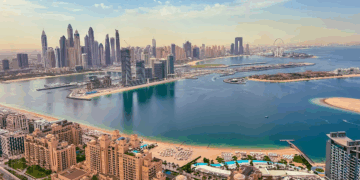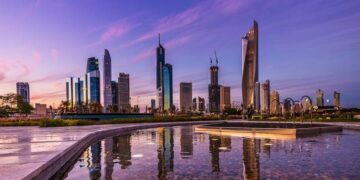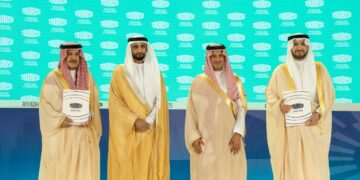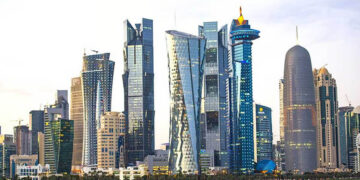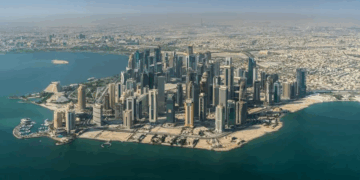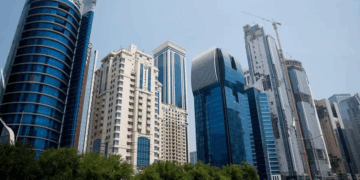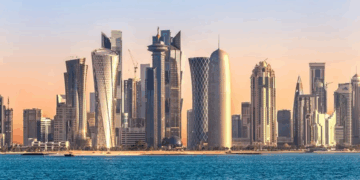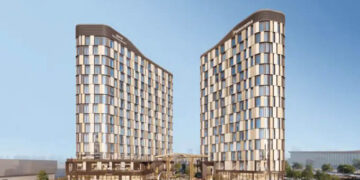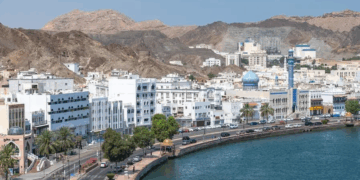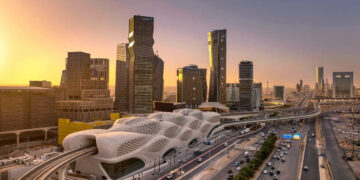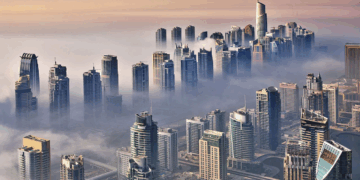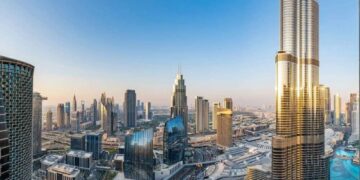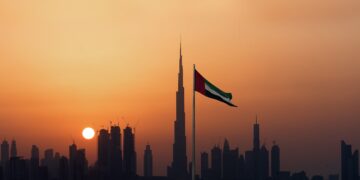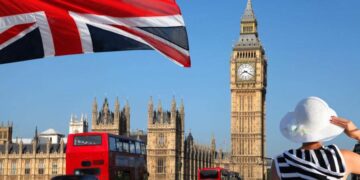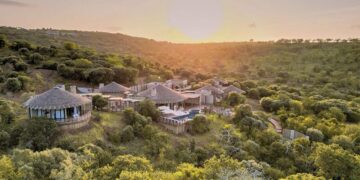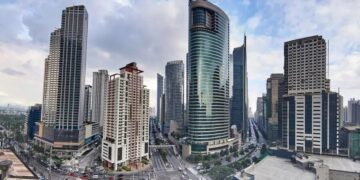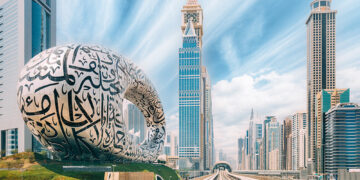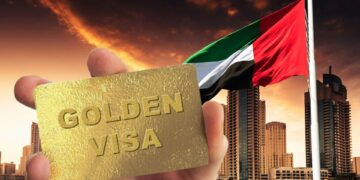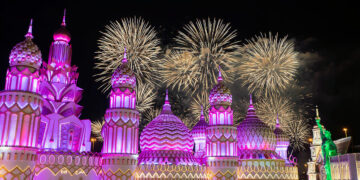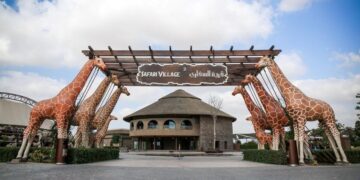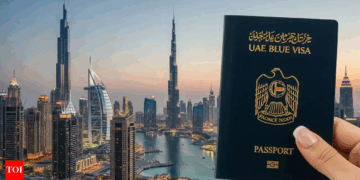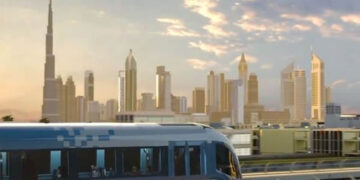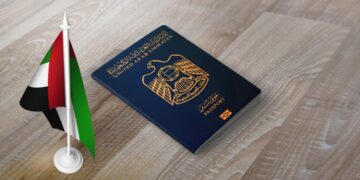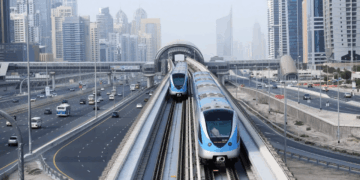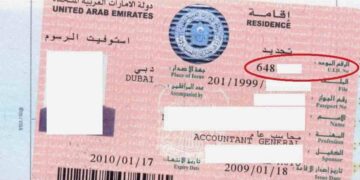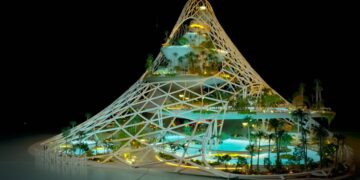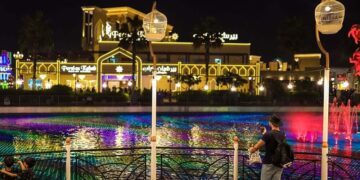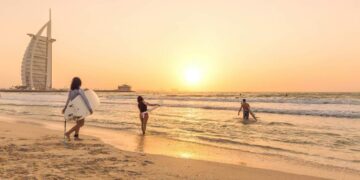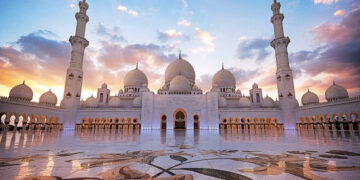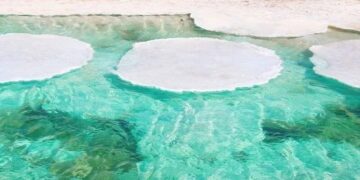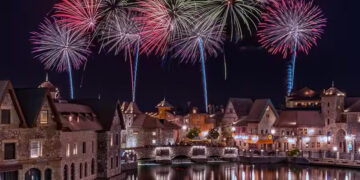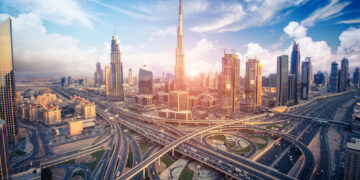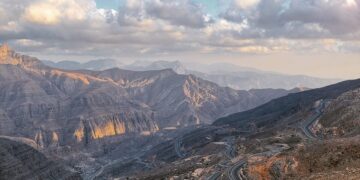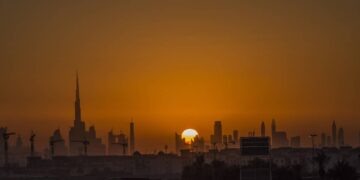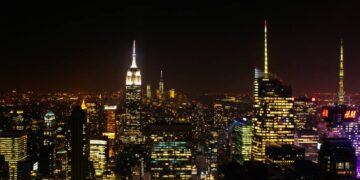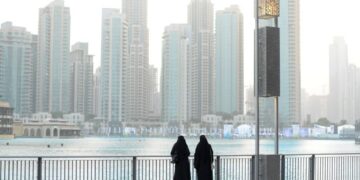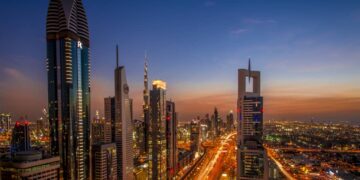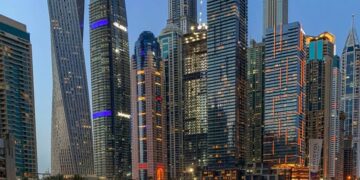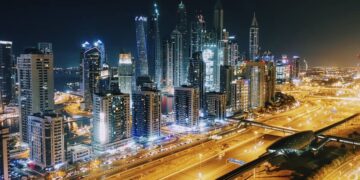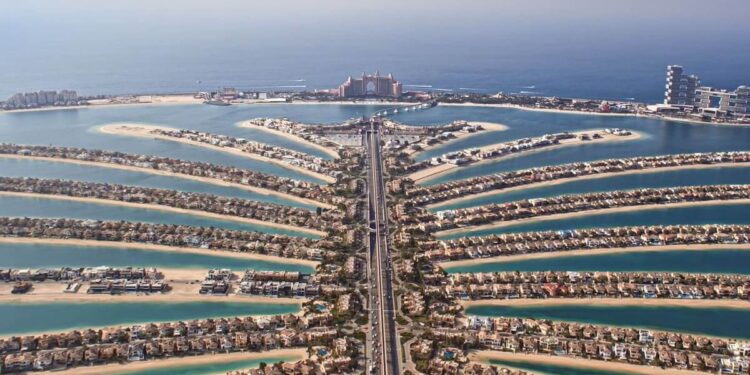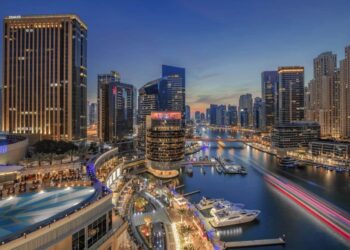Dubai: The World Islands in Dubai are now home to a brand-new luxury offering worth Dh3 billion. The newly announced complex, which is part of the Heart of Europe project, includes the first Buddha-Bar Hotel in the area, as well as Floating Villas and a special Buddha-Bar Beach Honeymoon Island.
Josef Kleindienst, the founder and chairman of Kleindienst Group, told Gulf News that the goal of this large investment is to attract the interest of luxury travelers from Europe as well as the booming staycation market in the UAE and GCC. St. Petersburg, Sweden, Switzerland, the Floating Venice, Germany, and main Europe are the six themed islands that make up the heart-shaped archipelago known as “The Heart of Europe.”
Kleindienst emphasized the launch’s calculated timing. He thinks that because of the growing tensions and trade disputes, European tourists are becoming less likely to visit the United States, which presents a big chance for the UAE and the GCC as a whole to draw luxury tourists from this market.
More confidence is added by the local market’s resilience. Kleindienst says the Heart of Europe can rely on the UAE and regional demand for staycations, even if international traffic slows down because of global economic concerns. He describes the strong local interest as a crucial buffer against potential declines in international inbound tourism.
“Right now, our focus is Europeans and UAE staycation guests. And when our network grows and is built up in this area, then we will extend to new areas,” said Kleindienst.
Project status, upcoming development
Nakheel started the $14 billion project more than 20 years ago, and it started with 300 artificial islands. Interest in the development declined after the 2008–2009 market meltdown until recently. The first phase of Kleindienst Group’s Dh1 billion Marbella Resort Hotel, Vignette Collection by IHG Hotels, was sold out in July of last year.
The Buddha Bar project, which was created in association with George V. Eatertainment/Buddha-Bar International, consists of a 162-key overwater hotel, a number of floating villas, and a special Buddha-Bar Beach Honeymoon Island.
The Buddha-Bar Beach Honeymoon Island, which is next to the hotel, is intended to be an all-day and all-night venue. The launch intends to “raise the bar,” bringing “the world’s finest experiences to one place” and become a leading social retreat in Dubai, according to Nabil Souhail, VP of Buddha-Bar International.
Over 4,000 keys will be distributed across 20 different hotels and resorts as part of the Heart of Europe project. According to Kleindienst, 52% of the construction has been completed thus far, with the project scheduled for completion by the end of 2027.
With a total capacity of 5,000 keys, the development is expected to accommodate up to 16,000 people on the islands at once, which includes up to 5,000 day visitors and roughly 11,000 guests during full occupancy. With a strong initial focus on Europeans and UAE staycationers, the group’s main target demographics are lifestyle and experiential luxury travelers, such as honeymooners, eco-conscious tourists, wellness seekers, and families.
While focusing heavily on the Heart of Europe project, Kleindienst said that the group has two other “mega projects” designed, with the first expected to be announced within the next year. One of these is located within the UAE, with the other’s location remaining undisclosed for now.
The region is thriving
Kleindienst’s insights extend beyond the specific development, offering a bullish outlook on the wider Middle East hospitality sector. He views the growth in neighboring countries positively, stating: “What is going on in the Middle East makes everything more attractive. Saudi Arabia’s opening makes the Middle East and every, every city in the Middle East more attractive.” While acknowledging that “Many people see this as a competition,” he countered, “We don’t see this as a competition. It will simply bring more people here.”
He elaborated on the evolving nature of tourism, particularly among European travellers, a key market for Dubai. “We know how Europeans travel,” he said, contrasting past behavior with present trends. “When I was young, our typical travel time was three weeks in one place… ‘Dolce far niente’ – the sweetness of doing nothing.” This, he explained, has drastically changed. “Today, the travel behavior is different… the most important in any destination is the internet so that you are connected,” he explained.
Summer appeal
In addition to trend adaptation, outside influences draw tourists, especially during the summer. Kleindienst emphasized how typical summer resorts are being impacted by climate change. “The typical European summer destination was the Mediterranean countries… But now the temperatures in Spain in summer are also reaching 50 degrees, like here, but without AC.” This discomfort, he believes, leads travellers to reconsider their options. “Now they say when it’s already hot, I prefer to go to Dubai.”
Getting to World Islands
Accessibility is a major issue for offshore development like the Heart of Europe, which is only 15 minutes from the mainland. According to Kleindienst, the developer has attempted to resolve the logistical issues that have arisen when traveling to the World Islands.
“We faced quite a challenging time until recently when Dubai’s Roads and Transport Authority (RTA) stepped in and started to support us,” Kleindienst said. This assistance includes the use of RTA ferries, access points in the water channel, and RTA marina locations. To further improve connectivity options, agreements have also been reached with three private marinas on Jumeirah Beach. Kleindienst said that because of these partnerships, the state of transport is “quite good” right now.
Future plans seek to diversify access, with floating helicopter landings scheduled for each of the six islands in the Heart of Europe, even if the majority of transportation will still be by boat. In order to apply for integration later, the group is also investigating technologies, watching the early stages of air taxis and drone transportation.
The possibility of establishing public water taxi connections in the future is another topic of discussion with the RTA. The price of a guest’s hotel accommodation includes the cost of regular transportation to the islands.
